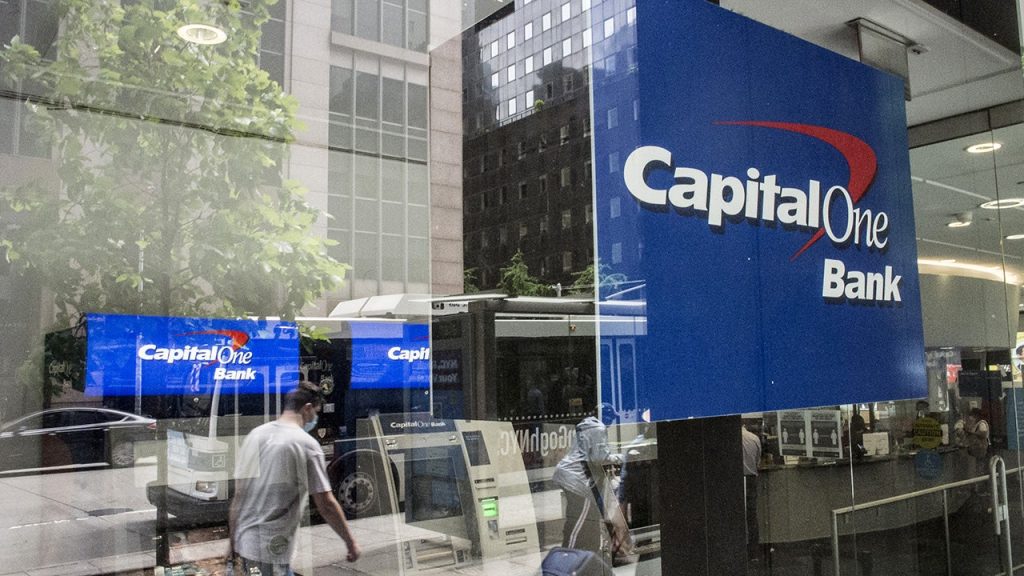Key takeaways
- Overdraft fees average $27 per transaction according to Bankrate’s 2024 checking account survey, but many major banks have eliminated or reduced these charges.
- Capital One, Citibank, and Ally Bank have completely eliminated overdraft fees, while others like Bank of America have reduced fees to $10.
- Bank overdraft revenue dropped 51 percent from $12 billion in 2019 to $5.8 billion in 2023 due to policy changes.
Overdraft fees are becoming less of a burden for many bank customers as more financial institutions move to reduce or eliminate these charges entirely. This trend reflects increased pressure from federal regulators and consumer advocates to curb fees that can impact customers’ finances.
The average overdraft fee is around $27.08 per transaction according to Bankrate’s most recent checking account and ATM fee survey. However, a growing number of banks now offer accounts with no overdraft fees or have implemented grace periods and reduced fee structures to help customers avoid these costly charges.
If you’re tired of paying overdraft fees, switching to one of these banks could save you hundreds of dollars annually while providing the same banking services with better fee structures.
New to overdraft fees? Learn how they work and strategies to avoid them with Bankrate’s complete guide to overdraft fees.
Banks with no overdraft fees or reduced overdraft fees
Alliant Credit Union
Alliant Credit Union stopped charging overdraft and nonsufficient funds (NSF) fees in 2021. Members who have accounts in good standing may qualify for the Courtesy Pay program, under which the credit union may cover checks or ACH electronic transactions that otherwise would have not cleared due to insufficient funds.
As part of its Extended Courtesy Pay program, Alliant may also cover debit card transactions that would have otherwise overdrawn an account. When transactions are covered through the Courtesy Pay programs, the full amount of the overdraft balance will be due immediately.
Ally Bank
Ally Bank eliminated overdraft fees during the COVID-19 pandemic in 2020 and made the change permanent in June 2021. When transactions would overdraw an account, the bank simply declines them without charging fees.
Ally provides a CoverDraft service offering up to $250 coverage for qualifying customers who overspend. Your next deposit automatically applies to any negative balance, providing a safety net without penalty fees.
Bank of America
In 2022, Bank of America stopped charging NSF fees and reduced overdraft fees to $10 from $35. No more than two overdraft fees may be charged in a day. The bank limits overdraft fees to two per day and eliminated the $12 overdraft protection transfer fee through its Balance Connect program.
BECU (Boeing Employees Credit Union)
BECU reduced its overdraft fees to $10 from $25 in October 2022, and it also did away with NSF fees for items returned or rejected due to an insufficient available balance. These changes apply to both consumer and business checking accounts.
BMO Harris
BMO Harris eliminated NSF fees and overdraft transfer fees in 2022, and it cut overdraft fees by more than a half — to $15 for each occurrence. This cuts overdraft charges to $15 per incident with a limit of three per day.
Capital One
In early 2022, Capital One stopped charging overdraft fees, which ended an annual revenue stream of an estimated $150 million. Prior to that, the bank charged a $35 overdraft fee for those enrolled in its next-day grace period program.
Now, eligible 360 Checking accounts offer free overdraft protection: Transactions can either be declined or covered via automatic transfers from a linked savings account — both without fees. The bank also stopped charging NSF fees in 2021.
Chime
Chime’s SpotMe, launched in September 2019, allows eligible checking account users to overdraft up to $100 (or more over time) without fees. As of October 2024, SpotMe had covered over $30 billion in transactions, and limits can grow to over $200 based on account activity, direct deposits and tenure. The platform also introduced MyPay in 2024, enabling fee-free early wage access up to $500.
Citibank
In June 2022, Citibank eliminated fees associated with overdrafts, overdraft protection, NSF and returned items. This made Citibank the largest bank to completely eliminate overdraft fees.
Linked savings accounts or Citi lines of credit can automatically transfer funds to checking accounts when negative balances occur, providing overdraft protection without fees.
Citizens Bank
Citizens Bank implemented an overdraft fee grace period in 2021, allowing customers to avoid fees by restoring positive balances by the next business day’s end. When fees are assessed, they’re $35 per item with a maximum of five per day.
The bank’s EverValue Checking account offers an alternative for customers who prefer no overdraft coverage, with transactions simply declined when insufficient funds exist.
Discover Bank
Discover Bank was ahead of the curve, historically not charging overdraft fees and eliminating insufficient funds fees for all accounts in 2019. This early move demonstrated how banks could maintain profitability while offering consumer-friendly policies.
Fifth Third Bank
In June 2022, Fifth Third Bank eliminated NSF fees for all consumer accounts. The bank charges a fee of $37 for each overdraft, with a maximum of three overdraft fees to be charged per day. These fees are not assessed on individual items of $5 or less; nor are they charged for accounts overdrawn by $5 or less at the end of a business day.
Huntington Bank
Huntington Bank reduced overdraft and NSF fees to $15 per occurrence in July 2022, limiting customers to three such fees daily. The bank doesn’t charge fees when accounts are overdrawn by less than $50.
KeyBank
In 2022, KeyBank reduced overdraft fees to $20 per occurrence and capped daily charges at three fees. The bank eliminated NSF fees and doesn’t charge overdraft fees when accounts are overdrawn by less than $20.
PNC Bank
In 2022, PNC Bank eliminated NSF fees for all consumer deposit account customers. The bank had already stopped charging these fees for its Virtual Wallet deposit accounts in 2021.
Virtual Wallet customers access the “Low Cash Mode” feature, limiting overdraft fees to one $36 fee per day. Users receive low balance alerts and at least 24-hour grace periods to add funds and avoid fees.
Regions Bank
In 2022, Regions Bank eliminated NSF fees and capped $36 overdraft fees at three instances per day. The bank no longer charges overdraft protection fees when funds transfer automatically between linked accounts.
Regions Overdraft Grace allows customers to restore account balances to $0 by the next business day’s end without overdraft fee assessment.
Santander Bank
Santander Bank increased its no-fee overdraft threshold to $100 in 2021, so accounts overdrawn by less than that amount avoid fees. In 2022, the bank reduced overdraft fees from $35 to $15, while eliminating the $12 overdraft protection fee.
Truist Bank
Truist Bank now offers two personal checking accounts without overdraft fees. The Truist One account provides qualifying customers with a $100 negative balance buffer.
The Truist Confidence Account doesn’t charge fees for overdrafts, returned items, or overdraft protection transfers, with transactions exceeding account balances typically declined.
U.S. Bank
U.S. Bank stopped charging NSF fees in early 2022 and and increased the no-fee overdraft threshold to $50 from $5. Customers have a full day to deposit funds once accounts reach negative balances exceeding $50, with $36 fees assessed for items the bank pays.
Wells Fargo
Wells Fargo eliminated NSF and overdraft protection fees in 2022, and it also began providing customers a 24-hour grace period to cover overdrafts before incurring a fee.
The bank’s overdraft fee is $35 per item for consumer accounts, with no more than three fees per business day.
Overdraft fee policies by bank
| Bank | Overdraft fee | Daily fee limit | NSF fee | Grace period |
|---|---|---|---|---|
| Capital One | $0 | N/A | $0 | N/A |
| Citibank | $0 | N/A | $0 | N/A |
| Ally Bank | $0 | N/A | $0 | N/A |
| Bank of America | $10 | 2 fees | $0 | No |
| BMO Harris | $15 | 3 fees | $0 | No |
| Huntington Bank | $15 | 3 fees | $15 | No |
| Wells Fargo | $35 | 3 fees | $0 | 24 hours |
| U.S. Bank | $36 | No limit | $0 | 24 hours |
Banks fined for overdraft fees
The Consumer Financial Protection Bureau has in the past taken aggressive action against what it calls “exploitative junk fees.” CFPB’s finalized rules from late 2024 would have capped overdraft fees at $5 or required banks to treat overdrafts as credit products with full disclosure and ability-to-repay assessments. These rules were set to take effect October 1, 2025.
In February 2025, President Trump removed CFPB Director Rohit Chopra and installed acting leaders who halted most agency operations, including enforcement and new rulemaking. As a result, many pending protections against “junk fees” — including limits on overdraft fees — have been suspended or repealed.
Congress reversed the CFPB’s original rule to cap overdraft fees via the Congressional Review Act, and the Trump administration has paused enforcement and new rules. Consumer groups estimate this rollback will cost Americans upward of $15 billion annually in excess fees.
Bottom line
Overdraft policies vary significantly among banks, from complete fee elimination to reduced charges and grace periods. Shopping for a bank with no overdraft fees can save you substantial money, especially if you occasionally experience account overdrafts.
Many banks now offer multiple checking account options, including accounts specifically designed to eliminate overdraft concerns. When evaluating banks, consider not only overdraft policies but also other factors like high-yield savings account rates, free checking account availability, and additional features such as early direct deposit access.
Take advantage of tools like low-balance alerts and overdraft protection to help avoid overdrawing your account regardless of which bank you choose. These proactive measures, combined with a bank that has eliminated or reduced overdraft fees, provide the best protection against costly banking fees.
Next steps: Find your ideal bank
Why we ask for feedback
Your feedback helps us improve our content and services. It takes less than a minute to
complete.
Your responses are anonymous and will only be used for improving our website.
Help us improve our content
Read the full article here












